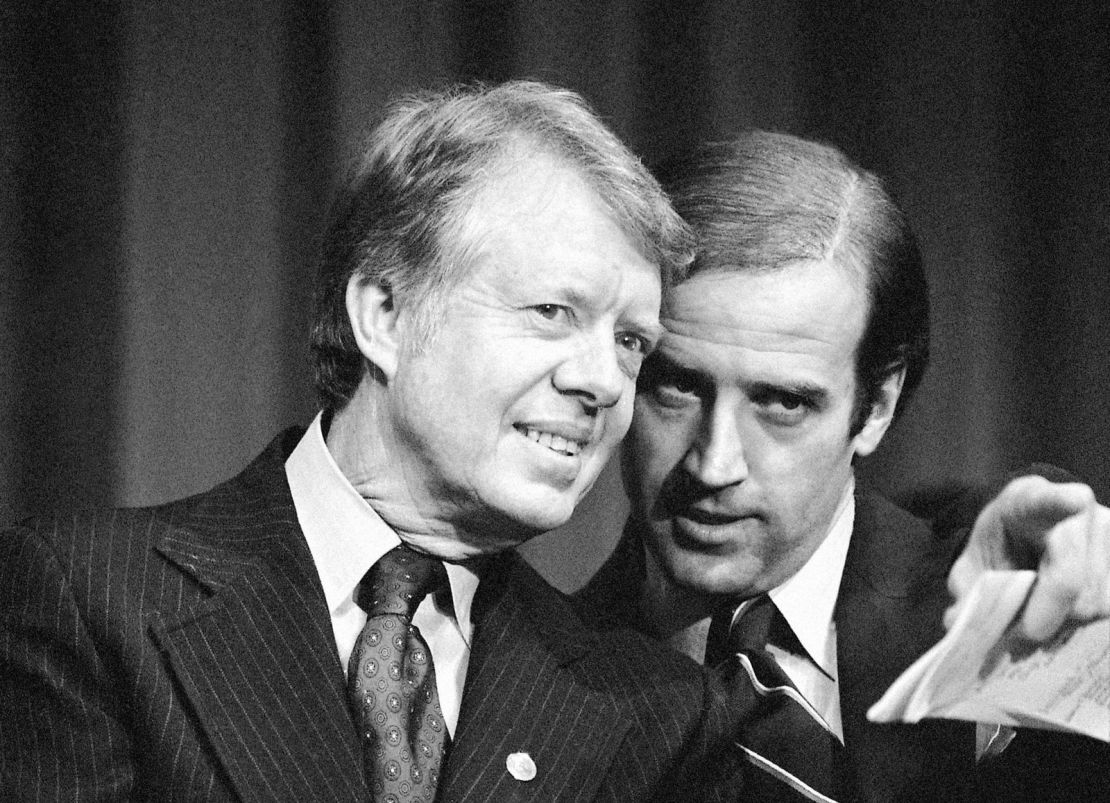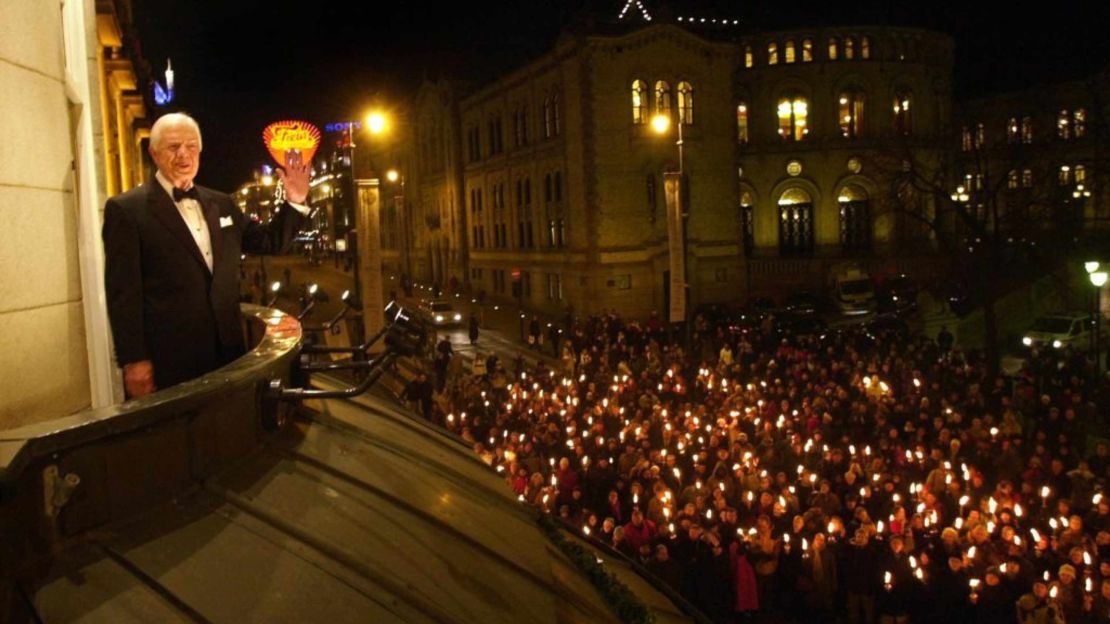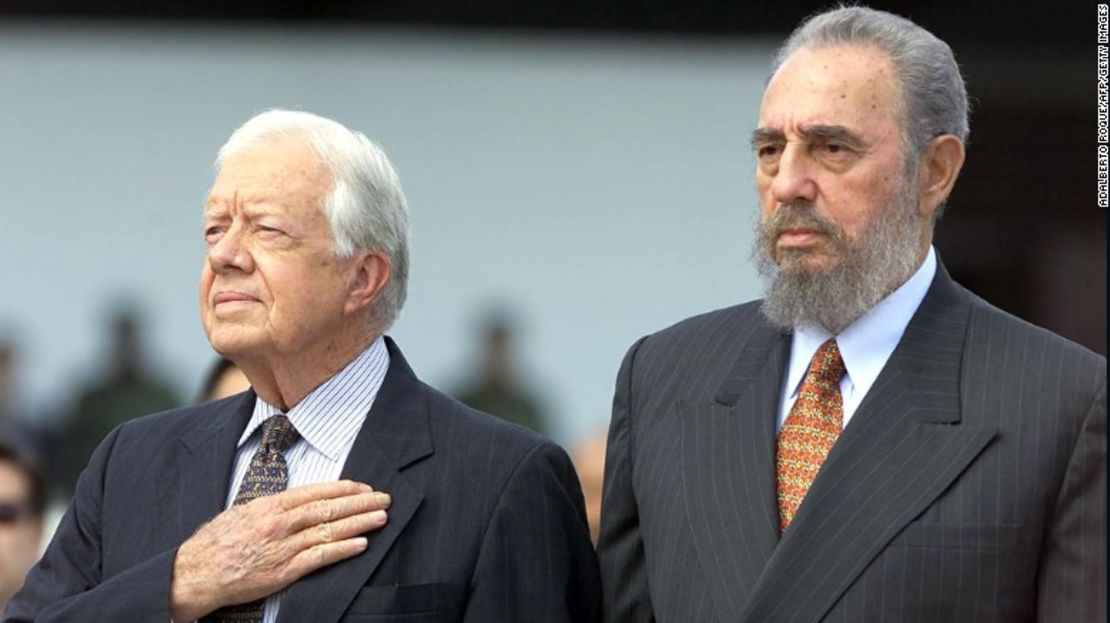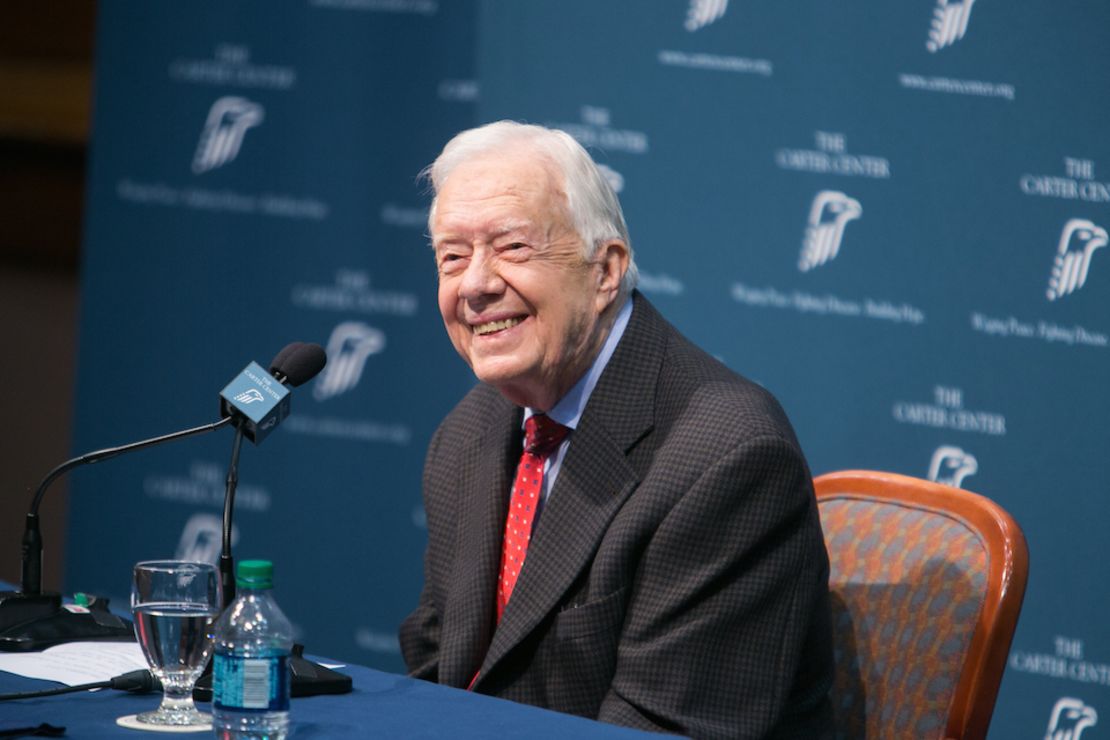() – Jimmy Carter, former president of the United States, was born in 1924 in Plains, Georgia and died on December 29, 2024. In 1946 he married Rosalynn (Smith) Carter, with whom he shared his life ever since and with whom he had four children. Here, a review of his personal life and his public career, which continued for decades after his departure from the White House.
- Birthdate: October 1, 1924
- Place of birth: Plains, Georgia
- Birth name: James Earl Carter Jr.
- Father: James Earl Carter Sr., farmer and businessman
- Mother: Lillian (Gordy) Carter
- Marriage: Rosalynn (Smith) Carter (July 7, 1946-present)
- Children: Amy Lynn, Donnel Jeffrey “Jeff”, James Earl III “Chip” and John William “Jack”.
- Studies: Georgia Southwestern College, 1941-1942; Georgia Institute of Technology, 1942-1943; US Naval Academy, 1946
- Participation in the Armed Forces: Navy Lieutenant, 1946-1953
- Religion: Christian
- Carter was the first American president to be born in a hospital.
- Defender of human rights, especially in relation to the governments of South Korea, Iran, Argentina, South Africa and Rhodesia (current Zimbabwe).
- The Carter Center, created by the former president and his wife in 1982, has observed 113 elections in 39 countries since 1989.
- He created the Department of Energy and established a national policy to address energy shortages.
- He is the oldest living former president.
- He has been nominated for nine Grammy Awards and has won three.
1953 – He works on his own farm in Plains, Georgia, and runs Carter’s Warehouse, a seed and farm supply company.
1962 – Wins election to the Georgia State Senate.
1966 – He runs for governor and loses to Lester Maddox.
November 3, 1970 – He runs for governor for the second time and wins.
1974 – He chairs the Democratic National Committee campaign for the 1974 Congressional elections.
December 12, 1974 – He officially announces his candidacy for the presidency of the United States.
November 2, 1976 – He is elected 39th president of the United States.

January 20, 1977 – Takes office as president.
March 26, 1979 – In a ceremony in Washington, Egypt and Israel formally sign a peace treaty ending 31 years of war between the two countries. The success of the Camp David Accords is one of the milestones of Carter’s presidency.
November 4, 1979 – The United States embassy in Tehran, Iran, is stormed and diplomatic staff are taken hostage. Carter’s inability to successfully negotiate the release of the hostages becomes a major political liability. The hostages are released on January 20, 1981, the day of Ronald Reagan’s inauguration.
1982 – He becomes a professor at Emory University in Atlanta.
1982 – Founded the Carter Center in Atlanta, in collaboration with Emory University. The Carter Center’s initiatives include monitoring international elections, fighting disease in developing countries, and seeking international peace. One of the Carter Center’s main achievements is the near eradication of Guinea worm disease, which went from more than three million cases in 1986 to 14 cases in 2021.
August 9, 1999 – He receives the Presidential Medal of Freedom, the highest honor for an American civilian.
May 14, 2002 – In a speech given in Cuba, Carter outlines his vision for improving trade relations between the United States and Cuba. The speech is broadcast live and without censorship on Cuban state television.
October 11, 2002 – Wins the Nobel Peace Prize.

February 11, 2007 – Wins a Grammy Award for Best Spoken Album for the audiobook “Our Endangered Values: America’s Moral Crisis.” Shares the award with Ruby Dee and Ossie Davis.
April 17, 2008 – He meets with Hamas leaders in Cairo, Egypt. Officials from the US and Israeli governments oppose Carter’s meeting, as both governments classify Hamas as a terrorist organization.
September 15, 2009 – Carter causes controversy with remarks on NBC’s Nightly News about President Barack Obama. Carter says: “An overwhelming part of the intensely demonstrated animosity toward President Obama is based on the fact that he is a black man, that he is African-American.”
August 27, 2010 – Carter negotiates release of the American citizen Aijalon Mahli Gomes. Gomes had been imprisoned in North Korea after entering illegally in January 2010. “At the request of President Carter, and for humanitarian reasons, the chairman of the National Defense Commission, Kim Jong-Il, granted amnesty to Mr. Gomes,” says the Carter Center in a statement.
March 28, 2011 – Carter arrives in Cuba on a three-day visit to meet with President Raúl Castro.

April 26, 2011 – He visits Pyongyang, North Korea, for talks aimed at easing tensions between North and South Korea, accompanied by former Finnish President Marti Ahtisaari, former Norwegian Prime Minister Gro Harlem Brundtland, and former Irish President Mary Robinson.
May 4, 2011 – In an opinion article in Washington PostCarter urges support for Hamas-Fatah unity government.
June 24, 2012 – In an opinion article in The New York TimesCarter claims that the United States is no longer a defender of human rights in light of recent legislative actions and drone attacks.
July 7, 2015 – His autobiography, “A Full Life: Reflections at Ninety,” is published.
August 3, 2015 – A “small mass” is removed from your liver during an operation. Days later he announces that surgery revealed that he has cancer, and that he will receive treatment at Emory University in Atlanta.
August 20, 2015 – Carter holds a press conference to announce that doctors found melanoma spots on his brain and that he will undergo treatment.
December 6, 2015 – Carter announces that, according to his latest brain MRI, the cancer is gone.
February 15, 2016 – He wins a Grammy Award in the Best Spoken Word Album category for the audiobook version of “A Full Life: Reflections on the Nineties.” It is his second victory at the Grammys.
February 10, 2019 – He wins his third Grammy Award in the Best Spoken Word Album category, this time for the audiobook version of “Faith – A Journey For All.”
May 13, 2019 – The Carter Center says the former president is recovering from surgery to repair a hip fracture after falling at his home in Plains, Georgia.
June 3, 2019 – Emory University announces that Carter has become a tenured faculty member after teaching at the Atlanta-based private university for 37 years.
June 28, 2019 – Carter suggests that a full investigation into Russian interference in the 2016 election would prove that Donald Trump did not win the presidency. In response, Trump later says that Carter is a Democrat and repeats a “typical talking point,” calling him a “good man, terrible president.”
September 17, 2019 – During an event at the Carter Center in Atlanta, Carter says that if he were 80 he wouldn’t be able to handle the responsibilities of being president and jokes that he hopes there is an “age limit” on the office. The comments are especially important at the moment, as the age of the three leading Democratic presidential contenders in 2020, who are in their 70s, has been the subject of continued debate.

September 9, 2020 – The documentary “Jimmy Carter: Rock & Roll President” premieres in theaters.
February 18, 2023 – The Carter Center announces that the former president, who has kept a low profile since the beginning of the pandemic, will begin receiving “palliative care in lieu of additional medical intervention.”
November 19, 2023: Rosalynn Carter, who as first lady worked tirelessly for mental health reform and professionalized the role of the president’s wife, at the age of 96.
October 1, 2024: Carter turned 100, becoming the first president to do so. President Joe Biden gave him a birthday greeting and expressed his admiration for his predecessor, and thousands of children made cards to commemorate the occasion.





![[Img #74760]](https://thelatestnews.world/wp-content/uploads/2025/01/Is-it-possible-to-objectively-measure-the-physical-pain-a-150x150.jpg)








![Nativity scene in the Basilica of the Lord of Esquipulas in Guatemala, where the Three Wise Men can be seen. [Fotografía Karla Arévalo / VOA]](https://thelatestnews.world/wp-content/uploads/2025/01/This-is-how-Central-America-celebrates-this-Christian-tradition.jpg)
Add Comment